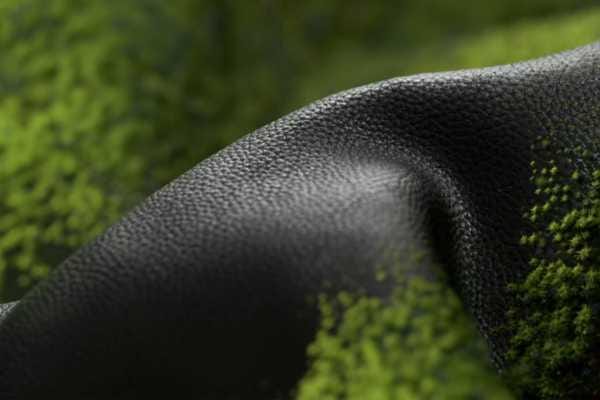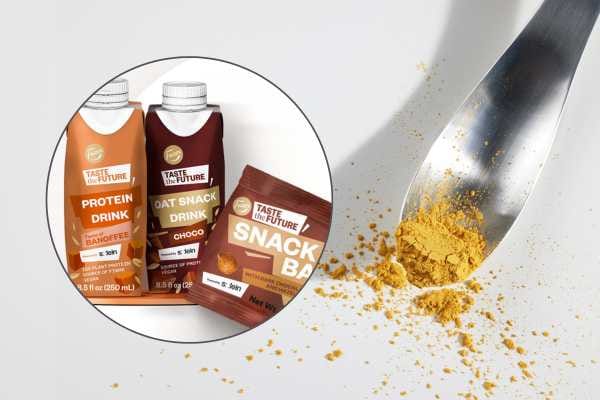Paper bags from autumn leaves
This Ukrainian startup is making paper and selling it globally without cutting down a single tree.

This Ukrainian startup is making paper and selling it globally without cutting down a single tree.
Imagine a world where instead of chopping down forests to make paper, it was created from the billions of leaves that fall from trees at the end of their life.
This is the inspiration behind Releaf Paper, the brainchild of Ukrainian entrepreneur Valentyn Frechka, who spent years refining and perfecting a method for doing just this – developing a line of paper-based products.
Frechka first thought of using leaves to make paper at the age of 16 for a school project. While testing materials such as grass and straw as alternative sources of cellulose, his attention turned to the nearby Carpathian forest.
Despite early failures, Frechka persevered until his process was viable and in 2021 he was joined by cofounder Oleksandr Sobolenko to help commercialise the leaf-to-paper production process.
With deforestation a pressing issue globally, the World Wildlife Fund (WWF) estimates the pulp and paper industry uses between 33–40 per cent of all industrial wood traded globally to make products such as office and catalogue paper, glossy paper, and tissue and paper-based packaging.
As well as protecting forests, part of the Frechka’s mission is to inject some much-needed sustainability into paper manufacturing by reducing C02 emissions as well as water and electricity use.
But he says his production process doesn’t just save trees. It also offers the chance to recycle the leafy bio-waste that would otherwise be collected from urban spaces such as parks and gutters where it can choke drains or spark fires.
According to Releaf, these leaves can be easily collected and are available all year round.
To make them into paper, the leaves are gathered from locations where they would otherwise be classified as biowaste. They are often burned, which creates polluting emissions of carbon monoxide and other harmful gases.
"We believe that trees should grow in the forest, humanity should breathe oxygen, and paper should be made of fallen leaves."

The pulp from the leaves substitutes for the cellulose within wood in Releaf’s line of paper-based products which includes paper bags, wrapping paper and paper to line other packaging.
Releaf Paper says it wants to promote the idea of a sustainable alternative to the “extermination of ancient forest for paper”.
It estimates that for every ton of cellulose made from fallen leaves, 17 trees are saved.
In addition, the company says that its paper production process uses much less electricity and water and emits 78 per cent less CO2 than a paper product of similar quality made traditionally.
“We believe that trees should grow in the forest, humanity should breathe oxygen, and paper should be made of fallen leaves,” the company says.
“Our technology allows us to produce cellulose from leaves without harming the environment.”
To advance its goals, Releaf took part in the European Commission’s EIC Accelerator 2022 program, submitting a plan for a pilot production line. It was granted E2.5m funding with future additional investment to scale up the project.
Using this and additional funding from the likes of Google and WWF, the company says it aims to expand its production capabilities into Europe over the next few years. It says it is also seeking more investors to help it scale its paper-making process globally.
The company has already signed a range of corporate customers that include the likes of Samsung, L’Oreal and Chanel.
The tech
Leaves from urban ecosystems in residential districts, parks and sidewalks are collected and loaded into a chemical reactor where they are cleaned and processed into a special fibre. Filler and special reagents are added to the cleaned fibre, and a paper machine rolls them onto a canvas which then dries into rolls of paper using a process that Releaf says is 78 per cent lower in CO2 emissions compared with traditional paper manufacturing and 36 per cent lower in CO2 compared with recycled paper manufacturing. In addition, Releaf says the process uses 15 times less water, three times less energy and the paper degrades in 30 days in soil – far less time than traditional paper takes to break down.
Who funds it
Releaf Paper has received E2.5m funding from an EU Accelerator and also receives support from organisations that include Google, WWF and Canopy.
Is it ready to roll
The company sells pre-made shopping bags and other paper products and has developed plans to expand its operations into Europe within the next few years.





